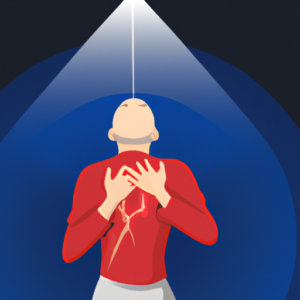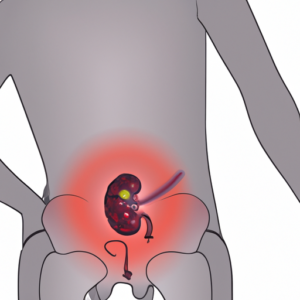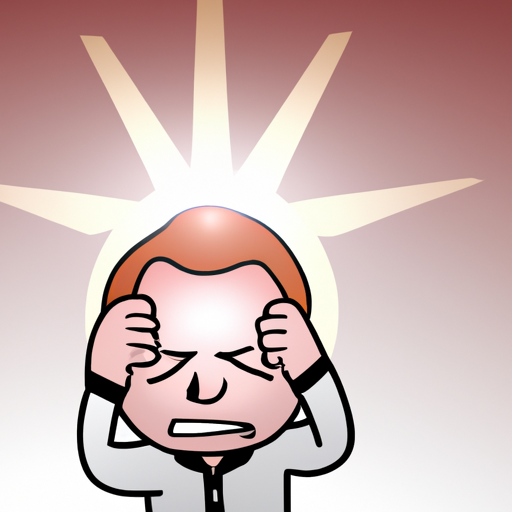Depression is a complex and pervasive mental illness that affects millions of individuals worldwide. It can have a profound impact on one’s emotional well-being, relationships, and overall quality of life. Despite its prevalence, depression is often misunderstood and stigmatized, making it crucial to increase awareness and understanding of this condition. This article aims to shed light on the multifaceted nature of depression by unraveling its symptoms, causes, and diagnosis. Additionally, it will explore the various effective treatment options available to those suffering from depression, and the importance of recognizing the signs and symptoms of this invisible struggle. By delving into these sections, readers will gain valuable insight into the world of depression and be equipped with knowledge to support both themselves and others in navigating the path to recovery.
1. "Understanding Depression: Unraveling the Symptoms, Causes, and Diagnosis"
Depression is a complex mental health disorder that affects millions of people worldwide. Understanding its symptoms, causes, and diagnosis is crucial in order to provide effective treatment and support for those who are suffering.
One of the primary challenges in diagnosing depression lies in the fact that its symptoms can vary widely from person to person. However, there are common signs that can indicate the presence of this condition. Persistent feelings of sadness, hopelessness, and emptiness are often experienced by individuals with depression. They may also have a decreased interest in activities they once enjoyed, experience changes in appetite and sleep patterns, and struggle with concentration and decision-making. Physical symptoms such as headaches, stomachaches, and fatigue may also be present.
The causes of depression are multifaceted and can be influenced by various factors. Biological factors, such as genetics and chemical imbalances in the brain, play a significant role. Individuals with a family history of depression are more likely to develop the disorder themselves. Additionally, certain neurotransmitters, such as serotonin and norepinephrine, are thought to be involved in regulating mood and can be disrupted in those with depression.
Psychological and environmental factors also contribute to the development of depression. Traumatic events, such as the loss of a loved one, physical or emotional abuse, or a major life change, can trigger depressive episodes. Chronic stress, social isolation, and a lack of social support can also increase the risk of developing depression. Furthermore, individuals with certain personality traits, such as low self-esteem and a pessimistic outlook, may be more susceptible to depression.
Diagnosing depression involves a comprehensive assessment by a healthcare professional, typically a psychiatrist or psychologist. They will evaluate the individual’s symptoms, duration, and severity, as well as any potential underlying medical conditions. The Diagnostic and Statistical Manual of Mental Disorders (DSM-5) is commonly used as a guide for diagnosing depression. It outlines specific criteria that must be met for a formal diagnosis to be made.
It is important to note that depression is a treatable condition. The most common forms of treatment include psychotherapy and medication. Psychotherapy, such as cognitive-behavioral therapy (CBT), helps individuals identify and change negative thought patterns and behaviors that contribute to their depression. Medications, such as selective serotonin reuptake inhibitors (SSRIs), can help restore the balance of neurotransmitters in the brain. In more severe cases, a combination of therapy and medication may be necessary.
In conclusion, understanding depression is crucial for both individuals experiencing the condition and those seeking to support them. By recognizing the symptoms, understanding the causes, and seeking appropriate diagnosis and treatment
2. "Navigating the Path to Recovery: Effective Treatment Options for Depression"
Depression is a mental health condition that affects millions of people worldwide. It can be debilitating, affecting one’s ability to function, work, and maintain healthy relationships. However, there is hope for those suffering from depression, as effective treatment options are available to help navigate the path to recovery.
One of the most commonly prescribed treatments for depression is antidepressant medication. These medications work by balancing the chemicals in the brain that are responsible for mood regulation. Selective serotonin reuptake inhibitors (SSRIs) are a popular class of antidepressants that are often prescribed due to their relatively low side effects and effectiveness. However, it is important to note that medication alone may not be sufficient for everyone, and it is always recommended to consult with a healthcare professional before starting any medication.
Psychotherapy, also known as talk therapy, is another effective treatment option for depression. This form of therapy involves talking to a trained therapist who can help individuals explore their thoughts, feelings, and behaviors. Cognitive-behavioral therapy (CBT) is a specific type of psychotherapy that has been proven to be effective in treating depression. It focuses on identifying and changing negative thought patterns and behaviors that contribute to depressive symptoms. Through therapy, individuals can gain a better understanding of their emotions, learn coping strategies, and develop healthier ways of thinking and behaving.
In some cases, a combination of medication and therapy may be recommended for optimal results. This approach can provide a comprehensive treatment plan that addresses both the chemical imbalances in the brain and the psychological factors contributing to depression. Additionally, lifestyle changes such as regular exercise, a balanced diet, and sufficient sleep can also play a significant role in managing and reducing depressive symptoms.
It is important to note that effective treatment options for depression may vary from person to person. What works for one individual may not work for another. Therefore, it is essential to work closely with healthcare professionals to find the most suitable treatment plan. They can assess the severity of the depression and tailor the treatment options accordingly.
While seeking treatment is vital, it is equally important to remember that recovery from depression takes time. Patience and perseverance are key when navigating the path to recovery. It is crucial to have a strong support system, including friends, family, or support groups, who can provide encouragement and understanding throughout the journey.
Depression is a challenging condition, but with the right diagnosis and effective treatment options, individuals can find hope and regain control of their lives. Whether it is through medication, therapy, or a combination of both, there are ways to manage and overcome depression. By seeking help and staying committed to the recovery process, individuals can take the first steps towards
3. "Shedding Light on the Invisible Struggle: Recognizing the Signs and Symptoms of Depression"
Depression is often referred to as the "invisible struggle" because its symptoms are not always visible to the naked eye. Unlike physical illnesses or injuries, depression primarily affects a person’s mental and emotional well-being. Understanding the signs and symptoms of depression is crucial for timely diagnosis and effective treatment.
One of the most common symptoms of depression is a persistent feeling of sadness or emptiness. Individuals experiencing depression may find that their mood remains consistently low, even when there is no apparent reason for their sadness. This sadness is often accompanied by a loss of interest or pleasure in activities that were once enjoyable. Hobbies, social interactions, and even personal relationships may begin to feel burdensome and unfulfilling.
Another key symptom of depression is a significant change in appetite and weight. Some individuals may experience a loss of appetite and noticeable weight loss, while others may turn to food for comfort and experience weight gain. Sleep disturbances are also common in depression, with individuals either finding it difficult to fall asleep or experiencing excessive sleepiness and fatigue.
Depression can also manifest in physical symptoms such as headaches, chronic pain, and digestive issues. These somatic symptoms are often overlooked or attributed to other causes, making it even more challenging to recognize depression. Additionally, individuals with depression may struggle with concentration and memory, finding it difficult to focus on tasks or make decisions.
A notable sign of depression is the presence of negative and self-deprecating thoughts. Individuals may constantly criticize themselves, feel guilty or worthless, and have a pessimistic outlook on life. This negative thinking can sometimes lead to feelings of hopelessness and even thoughts of self-harm or suicide.
It is important to note that while these symptoms are common in depression, not everyone experiences them in the same way. Some individuals may exhibit a few symptoms, while others may experience a combination of several. Additionally, the severity and duration of symptoms can vary from person to person.
Recognizing the signs and symptoms of depression is crucial for seeking help and initiating treatment. If you or someone you know is experiencing any of these symptoms, it is important to reach out to a healthcare professional or mental health provider. Depression is a treatable condition, and with the right support and intervention, individuals can reclaim their lives from this invisible struggle.




